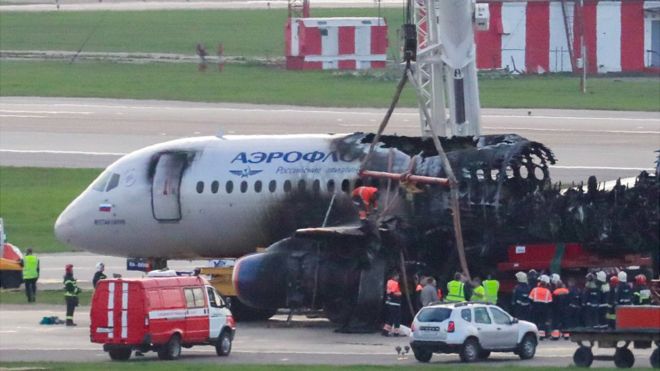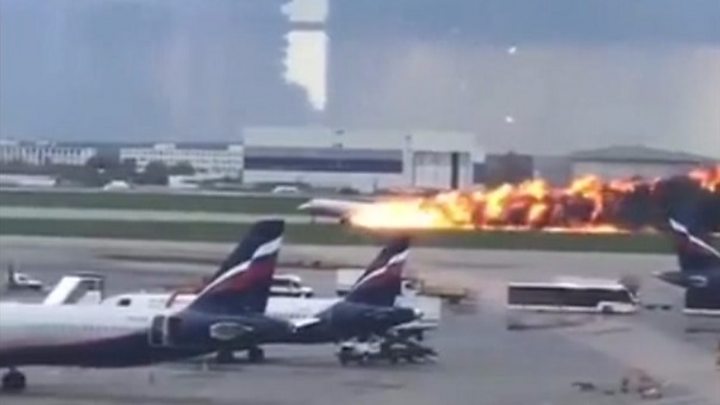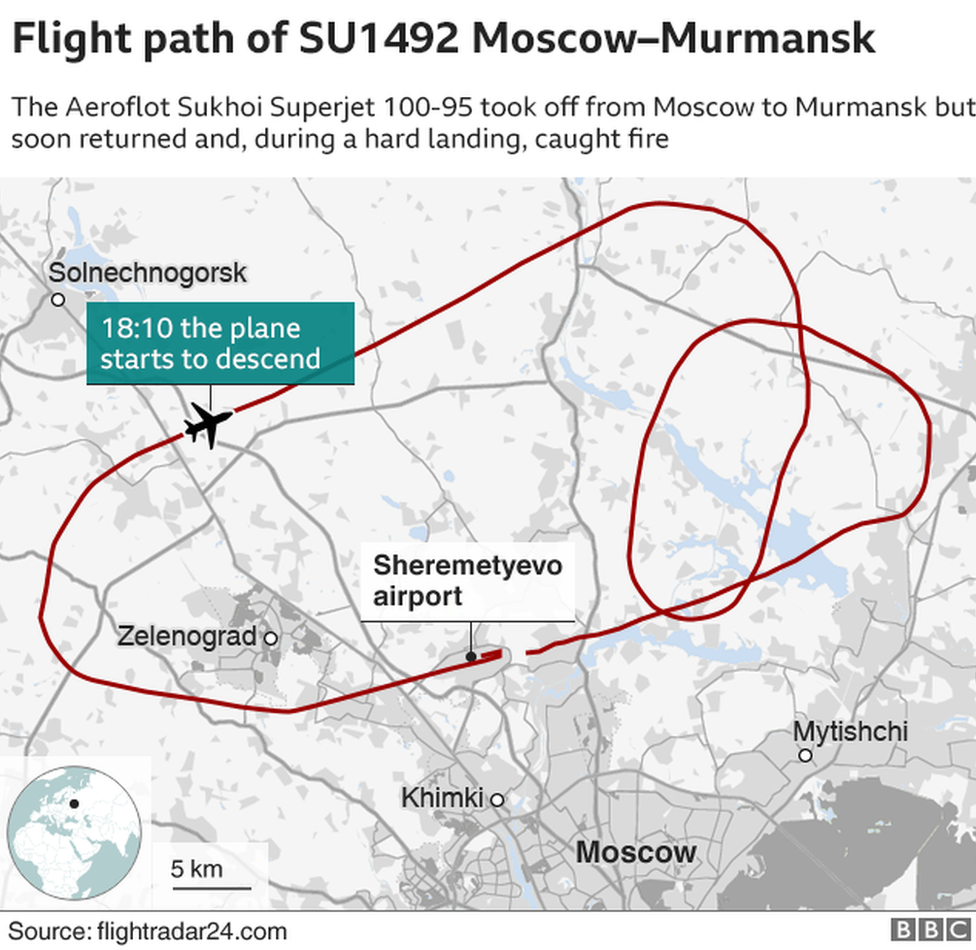Aeroflot plane crash: Pilot error theory probed
 GETTY IMAGES
GETTY IMAGES
Russian investigators are considering pilot error as a possible cause of the crash which killed 41 people on board an Aeroflot airliner at Moscow's Sheremetyevo airport.
Crew members and passengers say the Sukhoi Superjet-100 was struck by lightning in the air, which knocked out communications with ground control.
But the high-speed landing of a fuel-laden jet was not normal practice.
Meanwhile a video reveals officials joking while watching the burning jet.
It is not clear who the unidentified Russian officials are, in the clip broadcast on Twitter.
A statement from the Sheremetyevo airport management said the officials belonged neither to the airport company - called AO MASH - nor to Aeroflot.
The statement demands punishment for the officials in the clip, accusing them of breaching professional ethics.
Amid laughter one of them is heard saying "it landed all right, with a little flame" while the TV monitor shows the jet engulfed in an inferno.
The airliner made a hard landing 30 minutes after take-off on Sunday and burst into flames. It had taken off normally, bound for Murmansk in the far north.
Video showed a ball of flame engulfing the rear of the plane, but 37 people, including four crew members, managed to flee via escape chutes in the front section.

Two black box flight recorders were recovered in reasonable condition, and are being examined. But the results will not be known for a few weeks.
Russia's transport ministry has decided against grounding Superjet-100s, saying there is no obvious sign of a design fault.
But some aviation experts are asking why a lightning strike knocked out the plane's communications - something that should not normally happen, as modern jets are designed to withstand storms.
The crash jet was relatively new, it had not had a heavy flight schedule and had undergone a routine service in April.
Kommersant daily, quoting unnamed sources close to the investigation, says pilot error is seen as a strong possibility in the crash. Several factors are under scrutiny:
- The pilots decided to fly into a storm front, which raised the level of risk
- They were in a hurry to land, though normal procedure is to circle over the airport first, to burn up fuel
- They were landing on emergency control mode - requiring more skill - as automatic systems had failed
- They appear to have exceeded the normal landing speed which, along with heavy fuel tanks, made the plane bounce off the tarmac
- The landing impact appears to have damaged the undercarriage, sending debris flying into one or more engines, causing the deadly blaze.
Pilot Denis Yevdokimov, quoted on the Russian Telegram channel Baza, said "the fire (came) after landing, I understand... because of the landing; that was probably the reason", and he noted that its fuel tanks were full.
Aeroflot owns at least 50 Superjets and has ordered 100 more. The planes first entered service in 2011.
There have been sporadic concerns over the reliability of Superjets. An Aeroflot internal document from February 2018 classed the type's safety level as "average", whereas all the airline's Airbus and Boeing jets had a "high" safety level.
Sunday's disaster was the first crash of a Superjet on a commercial flight. But in 2012 a Superjet on a demonstration flight slammed into a volcano in Indonesia, killing all 45 people on board. The crash was blamed on human error.

No comments:
Post a Comment
Note: Only a member of this blog may post a comment.